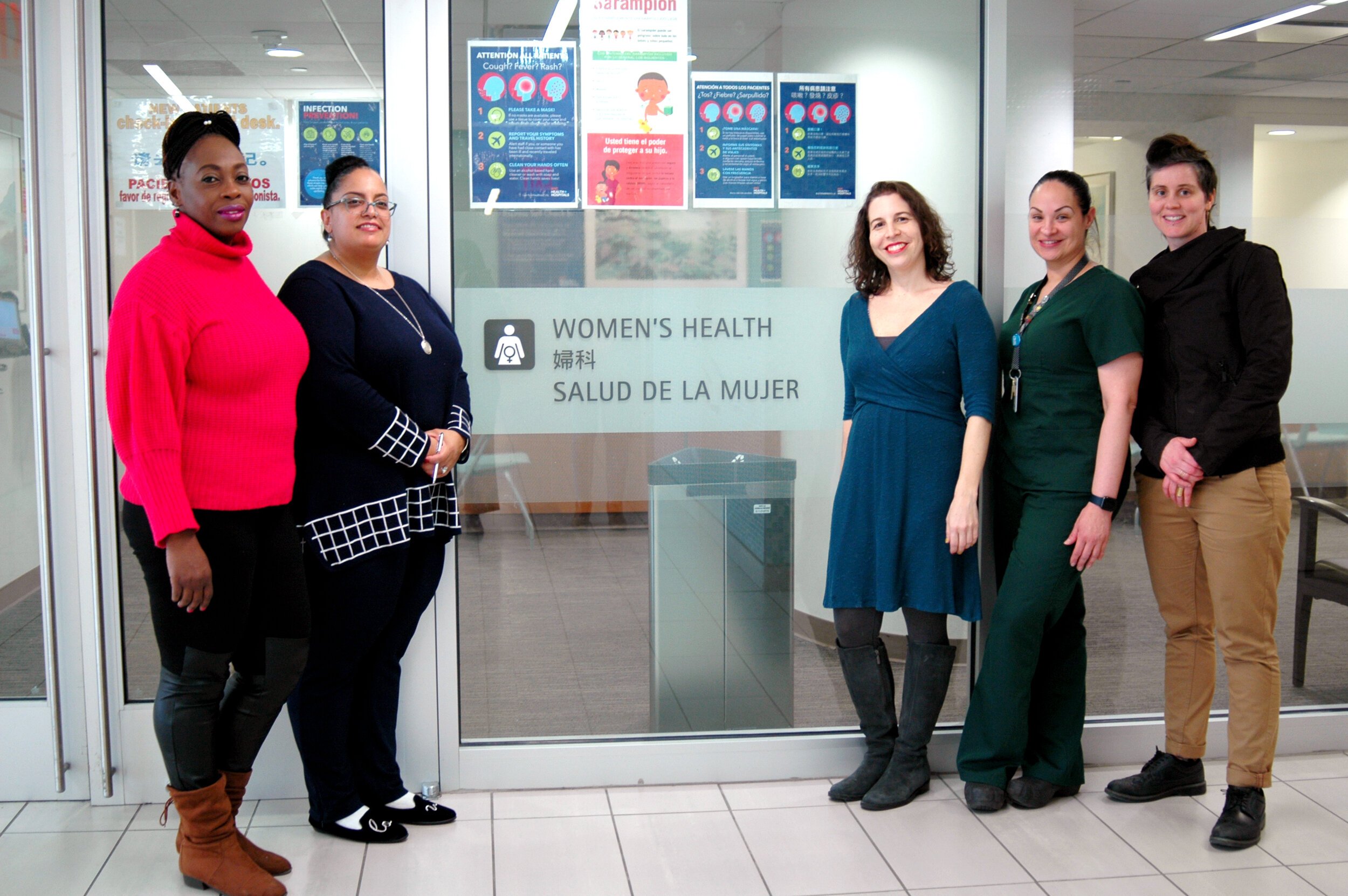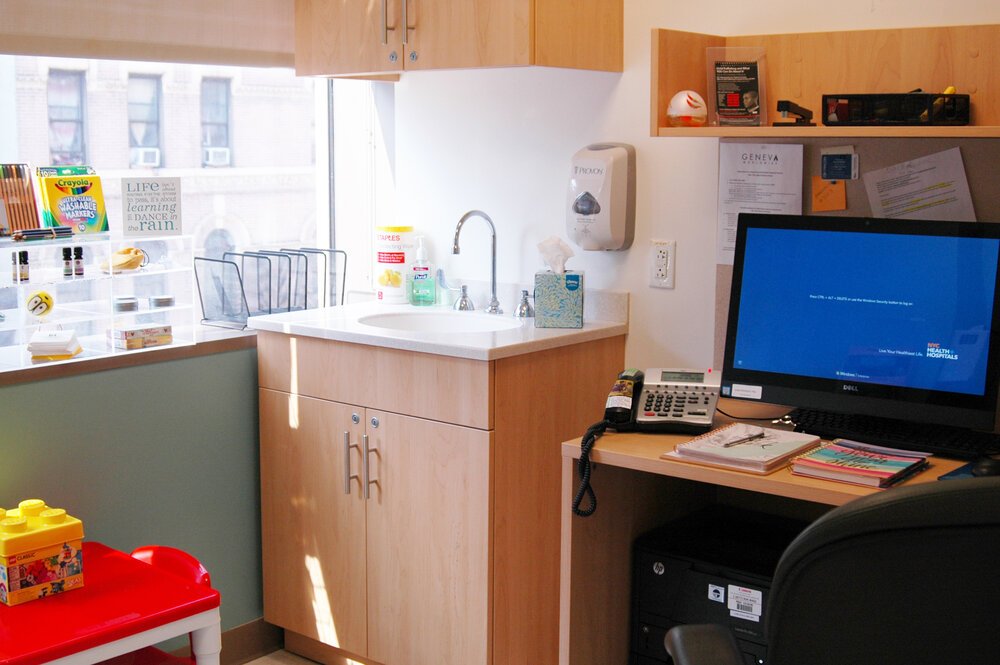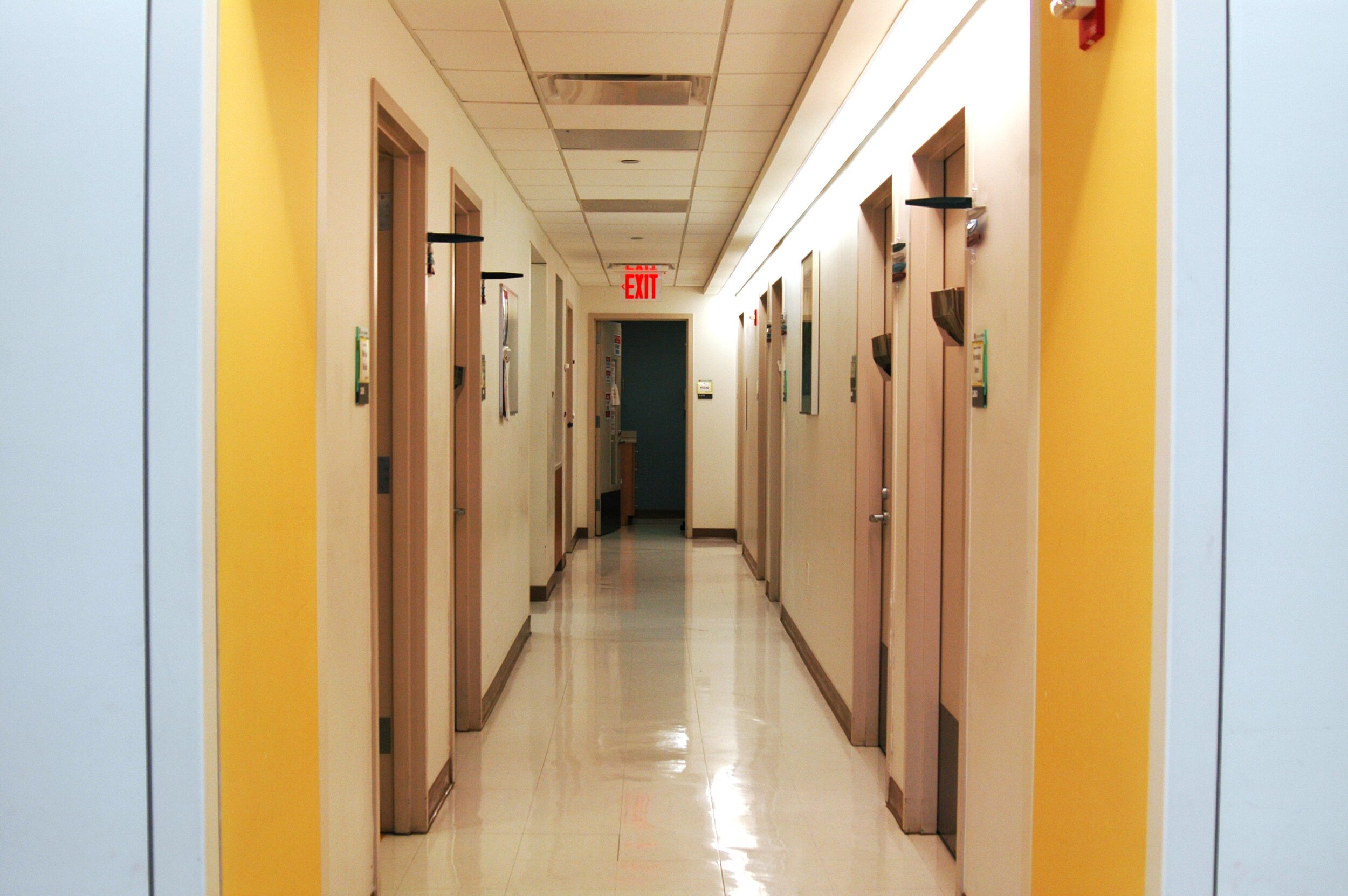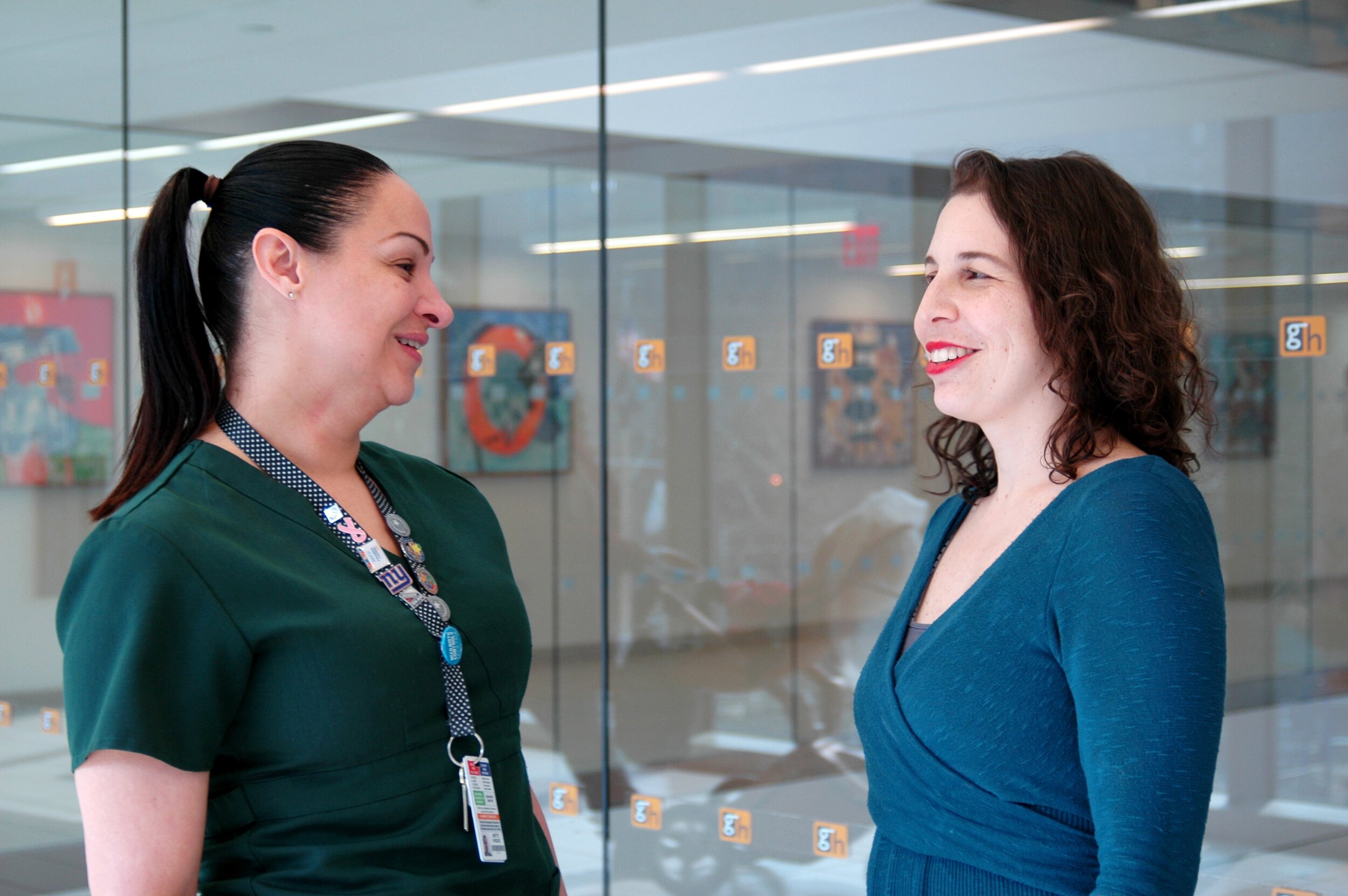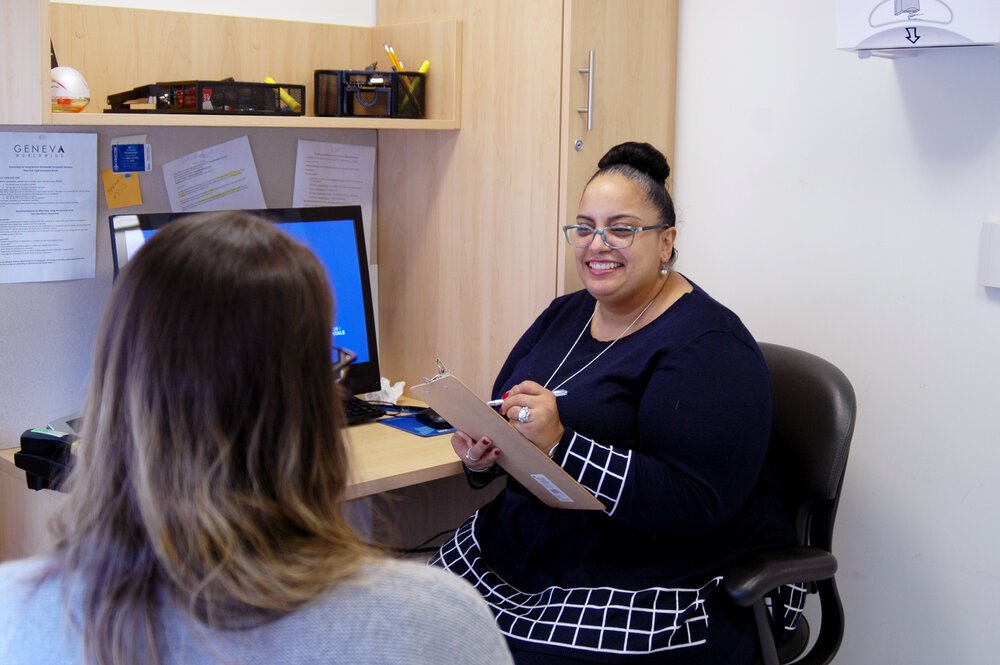Celebrating 10 Years of EMPOWER!
In celebration of the 10 year anniversary of the EMPOWER Center, we conducted an interview with founder, Dr. Veronica Ades and project director, Ane Mathieson to reflect on their experiences over the past decade with EMPOWER, and look ahead to what the next 10 years may hold.
What inspired you to start EMPOWER?
Dr. Ades: In 2012, I saw a patient and on her third visit to me she came with her case manager from Sanctuary for Families, who disclosed that the patient was a survivor of sex trafficking. I spoke to the case manager and asked if it might be helpful to have GYN services dedicated to providing care to survivors. I also thought about patients I have seen throughout my career who have experienced sexual violence, and how their needs are probably similar to people who have been sex trafficked, so I started seeing patients in my panel and learning more about trauma through my work. Eventually, I came up with the name EMPOWER, and was referred more and more patients through word of mouth.
Ane: In 2010, I volunteered with a nonprofit that provided services to homeless youth. As part of the nonprofit’s residential programming, I tutored sex trafficked children and teenage girls. During this time, I met staff, including a survivor of the sex trade, who were starting a nonprofit, the Organization for Prostitution survivors (OPS), committed to serving adult survivors of the sex trade.
After reflecting on what I could contribute to efforts to address this serious social issue, I decided to move to Sweden with a Fulbright fellowship to research the Nordic Model, a feminist prostitution policy model that redefined prostitution as a severe form of violence against women.
While in Sweden, I interviewed a broad range of individuals involved in both the crafting and implementation of the Nordic Model including social workers and therapists from all three Swedish social service prostitution units. I was particularly inspired by these prostitution centers, which provide medical, legal, and social services to survivors of the sex trade. I decided I would dedicate my career to launching similar centers in the U.S.
Can you walk us through the timeline of EMPOWER’s development over the past decade?
Dr. Ades: In 2013, EMPOWER began with only OB/GYN services. I quickly saw that patients had significant mental health needs and while most had therapists through social service organizations, they struggled to find a psychiatrist if they needed one. I applied for funding through the Van Ameringuen Foundation and received a grant for a reproductive psychiatrist for 2 years.
At a New York anti-trafficking meeting I heard Ane present her data from her Fulbright in Sweden and the Netherlands, and I was blown away by her findings. Ane's research on anti-trafficking controversies and policies resonated with my experience and patients' experiences. We discussed the idea of a comprehensive care center for sex trafficking survivors, similar to Sweden's programs.
In 2019, Sanctuary for Families applied for City Council discretionary funding to create EMPOWER, which was approved and launched in January 2020. The program has since developed remote intake processes and service delivery, while still offering in-person services when appropriate.
Ane: In 2016, I moved to NYC with the hope of starting a comprehensive, co-located medical, legal, social service center for survivors of the sex trade. At this time, I regularly presented on my Fulbright fellowship research. While presenting for the New York State Anti-Trafficking Coalition, I met Dr. Ades, who, with the EMPOWER Clinic, had already started a version of the center I hoped to launch.
“I wanted to center survivors of the sex trade, to elevate the injustices they faced, and to provide them with a place where they would be treated with the dignity and respect they deserved.”
Can you share with us what the goals were when you started EMPOWER, and how they may have evolved over the past 10 years?
Dr. Ades: When I started EMPOWER in 2012, my goal was just to provide post-sexual trauma gynecologic care, as I called it at the time. Soon after, I added the psych piece but with the expansion, the goal was to show the importance of comprehensive, collaborative care in supporting survivors. We hoped to demonstrate that collaborative care works better than siloed service delivery because survivors have so many profound and competing needs, and that addressing only one need at a time often leaves them with insufficient support.
Ane: In the United States, survivors of the sex trade are subject to extensive violence and are murdered at rates dramatically higher than that of non-prostituted individuals. Criminal records and repeated incarceration create severe economic disadvantages for women in the sex trade and add to the difficulties they face in exiting and obtaining services. Criminal records from prostitution-related crimes and the resulting time spent in incarceration, impact survivors’ ability to access education, housing, legal employment, and loans.
My goal with the EMPOWER Center was to change all of this. I wanted to center survivors of the sex trade, to elevate the injustices they faced, and to provide them with a place where they would be treated with the dignity and respect they deserved.
“ I am constantly amazed at how incredible each member of our team is. Each person performs their own role expertly, while still relying on each other for support and collaboration. ”
What are some of the key accomplishments/milestones that you are the proudest of?
Dr. Ades: Expanding from the original clinic to the comprehensive care center was the biggest one. It took a lot of imagination, collaboration and advocacy. I am so grateful to Sanctuary for Families for providing the grant-writing support, and the NYC City Council for seeing the value in our proposal and funding it every year since 2019.
Secondly, I am so proud of the team we have built. This work is very challenging and can be emotionally draining and stressful. It requires the right people to do the work. I am constantly amazed at how incredible each member of our team is. Each person performs their own role expertly, while still relying on each other for support and collaboration. Our weekly team meetings are a joy, because we genuinely enjoy working together, and each of us is strengthened in our work by the input of our fellow team members.
Ane: Dr. Ades and SFF have been working together for years to provide services to survivors of trafficking, commercial sexual exploitation, and individuals with experiences in the sex trade. In 2019, a grant from the NYC Council enabled the EMPOWER clinic to expand significantly into the EMPOWER Center. Our multidisciplinary team now includes a peer care navigator, case manager, economic empowerment specialist, program coordinator, psychologist, primary care physician, obstetrician-gynecologist, attorneys and interns. Clients seek services at their own volition, without being compelled by the judicial system to receive support. Our services are free and clients are not required to leave the sex trade to receive them. The EMPOWER Center caters to clients from all stages of prostitution, including those who have recently entered or exited the sex trade.
What are some of the most meaningful takeaways from your work at EMPOWER in the past 10 years and what are your goals and aspirations in the coming years?
Dr. Ades: I have learned that I can have big, slightly crazy dreams, and work to make them a reality. When I think back to our early planning stages, it’s astounding that this great idea we had actually happened. I have also learned that the most vulnerable patients need more than just medical care to become stable and healthy. Life challenges interfere with their ability to maintain access to healthcare and health, and health problems interfere with life. Our collaborative model should be the model for many more programs, and we need to stop blaming patients for failing to achieve optimal health when there are so many barriers.
I would love to find a way to incorporate trainees or train others in my methods. I haven’t been able to do that because I prioritize the trust-building relationship with my patients and can’t triangulate the care by having a trainee in the room, but I also recognize that there is an appetite for this work, especially among medical students. I want to find ways to train others that doesn’t interfere with doing the work. I would also love to replicate the model in other locations, as there is a huge amount of need.

